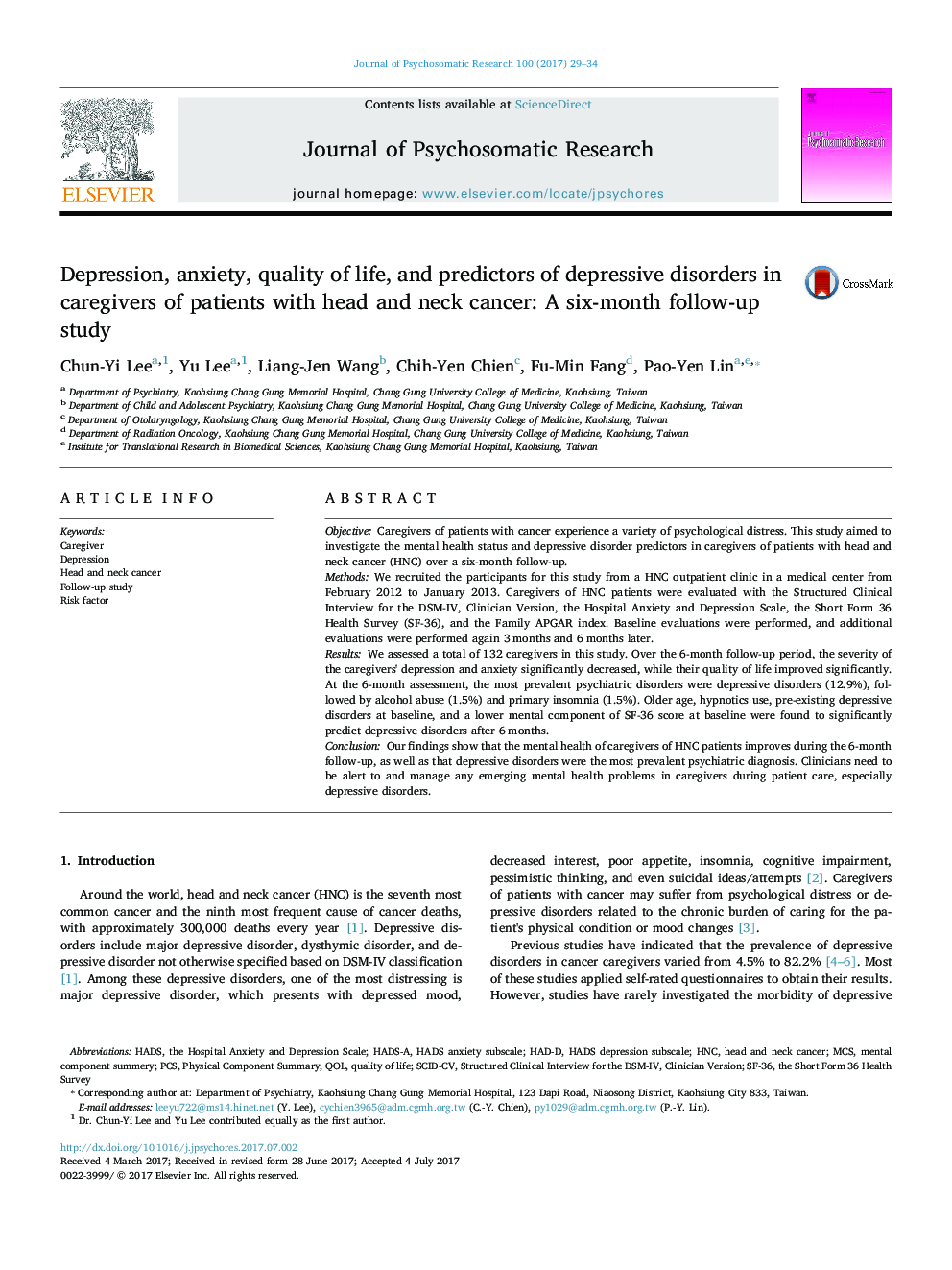| کد مقاله | کد نشریه | سال انتشار | مقاله انگلیسی | نسخه تمام متن |
|---|---|---|---|---|
| 5045800 | 1475895 | 2017 | 6 صفحه PDF | دانلود رایگان |
- 132 caregivers of head and neck cancer patients were assessed for mental health condition.
- Depressive disorders are the most prevalent psychiatric diagnosis at baseline, 3-month, and 6-month follow-up.
- The severities of depression and anxiety are significantly improved at 3 and 6Â months.
- Older age, hypnotics use, depression at baseline, lower mental health at baseline predicted depression after 6Â months.
ObjectiveCaregivers of patients with cancer experience a variety of psychological distress. This study aimed to investigate the mental health status and depressive disorder predictors in caregivers of patients with head and neck cancer (HNC) over a six-month follow-up.MethodsWe recruited the participants for this study from a HNC outpatient clinic in a medical center from February 2012 to January 2013. Caregivers of HNC patients were evaluated with the Structured Clinical Interview for the DSM-IV, Clinician Version, the Hospital Anxiety and Depression Scale, the Short Form 36 Health Survey (SF-36), and the Family APGAR index. Baseline evaluations were performed, and additional evaluations were performed again 3Â months and 6Â months later.ResultsWe assessed a total of 132 caregivers in this study. Over the 6-month follow-up period, the severity of the caregivers' depression and anxiety significantly decreased, while their quality of life improved significantly. At the 6-month assessment, the most prevalent psychiatric disorders were depressive disorders (12.9%), followed by alcohol abuse (1.5%) and primary insomnia (1.5%). Older age, hypnotics use, pre-existing depressive disorders at baseline, and a lower mental component of SF-36 score at baseline were found to significantly predict depressive disorders after 6Â months.ConclusionOur findings show that the mental health of caregivers of HNC patients improves during the 6-month follow-up, as well as that depressive disorders were the most prevalent psychiatric diagnosis. Clinicians need to be alert to and manage any emerging mental health problems in caregivers during patient care, especially depressive disorders.
Journal: Journal of Psychosomatic Research - Volume 100, September 2017, Pages 29-34
